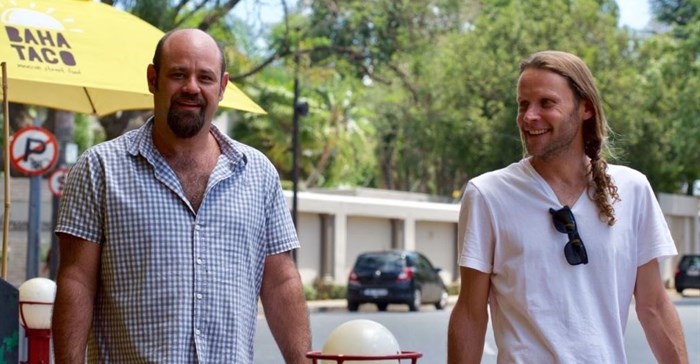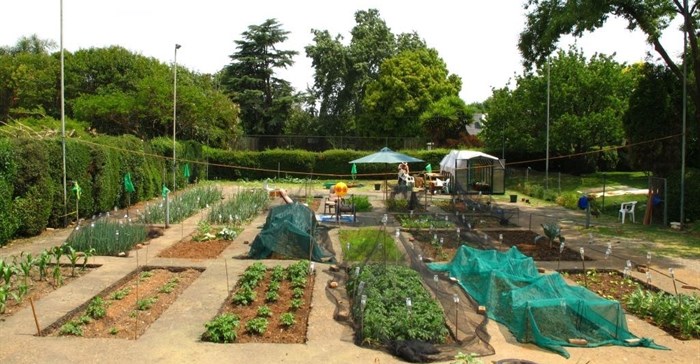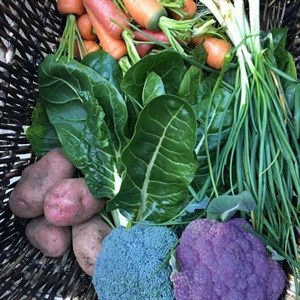
Subscribe & Follow
Advertise your job vacancies
#UrbanAgri: Let It Grow Foundation helps communities grow their own urban farms
From a barren tennis court to three men driven by the purpose to heal the soil and teach South Africans to live sustainable and healthy lives through urban farming projects using permaculture methods, the Let It Grow Foundation is an NPC that focuses on sharing knowledge and urban farming methods - getting their hands dirty by helping communities create urban farms. Founder of the Let It Grow Foundation, Clifford Rosen, tells us more.

Clifford Rosen and Jayson Fox
Tell us about the Let It Grow Foundation?
It began in 2009 with a small raised bed on my tennis court, where very little grew, except for a deep need and knowing, that food security and sustainability is my purpose. From there I opened myself up to learning all I could from those around me that had more experience and teamed up with Jayson Fox and then Calvin Ncube. The tennis court was soon transformed into beds and this is where the experimenting and learning began on a deeper level. Plus, I attended many courses and workshops around the country. By 2011, there was an abundance of produce and food on the urban farm. The next logical step was to share the food, the knowledge and ability to ‘grow your own' food. And the Foundation was born.
Let It Grow Foundation is a non-profit company that focuses on sharing knowledge and tools on urban farming. By getting actively involved within communities, our purpose is to enrich South African lives by providing a means to sustainable, healthy living. The main purpose: practical social development.

Tell us about some of the projects the foundation has been working on?
Let It Grow successfully runs the urban farm at the Soweto Association of People with Disabilities Centre, who are currently enjoying nutritious Swiss chard, kale, onion, and beetroot from their urban farm. Plus, by selling the surplus to the local community, the Centre is able to generate an income.
The Foundation Clinic, a rehabilitation centre, has been reaping the rewards of Let It Grow’s knowledge and skills since 2012, with a well-maintained food garden that forms part of the therapeutic programme for their patients. The food is also enjoyed by the counselling team, all staff members, and patients.
What approach do you take when setting up an urban farming project?
Each project is unique in that the space, sun positioning, soil and general environment dictate where we begin. Once the soil has been nursed to health and is alive and ready to produce, we use permaculture and agroecology principles to guide us in which seeds to plant together for companion planting. Bill Mollison, an Australian ecologist and University of Tasmania Professor, created the permaculture principles in the 1970’s. He spent many years as a wildlife biologist observing how natural systems work.
A permaculture garden is organic by nature, however, its intelligent design uses free, sustainable energies and resources. It is energy-wise and collaborates to minimise the impact of a site on the surrounding environment and to operate and flourish in harmony. Agroecology uses a whole-systems approach to agriculture and food systems development based on traditional knowledge, alternative agriculture, and local food system experiences. It links ecology, culture, economics, and society to sustain agricultural production, healthy environments, and viable food and farming communities.

What are the benefits of establishing urban farms?
The benefits to a community are food and the ability to grow your own food, using the permaculture method – which is sustainable. The soil is enriched and forms the foundation of any healthy urban farm or food garden. It addresses food security and social development, even unemployment. By connecting human beings back to their food source, the soil and planet, they reconnect and fulfill a basic need for purpose and acknowledgment. And, it raises awareness of the environment we create for ourselves and others.
What would the foundation like to achieve by helping communities, families, businesses establish urban farms?
We want to establish abundant food gardens that can be utilised in teaching the techniques and knowledge of how to ‘grow your own’, using permaculture methods. At the same time, we are driven to address the food security issues that are evident to too many people today and show (and teach) how even a small piece of land/soil can produce delicious and healthy food.
To get involved email az.oc.worgtitel@ffilc. The Let It Grow Foundation will continue sharing their urban farming knowledge, so stay tuned.

Related
Urban food gardens produce more than vegetables, they create bonds for young Capetonians – study 3 Feb 2025 Industrial scale farming is flawed: What ecologically-friendly farming practices could look like in Africa 24 Jan 2025 Urban agriculture isn’t as climate-friendly as it seems – but these best practices can transform gardens and city farms 23 Jan 2024







